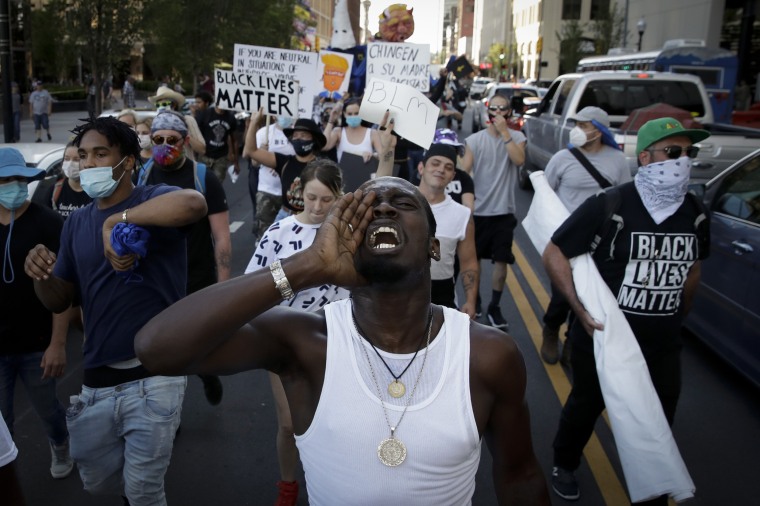In a first-of-its-kind effort, the Biden administration is asking people from both the public and the private sectors for their ideas about how to make sure the federal government equitably serves historically underserved communities.
Responses to a "request for information" from the Office of Management and Budget, or OMB, would help identify gaps in budgeting and policy that aggravate inequality, particularly among communities of color, women, religious minorities, LGBTQ people, disabled people and rural communities, the agency said in announcing the initiative Tuesday.
The office, which works to assist the president in meeting policy, budget and regulatory goals, will coordinate with other federal agencies, such as the Treasury, Justice, and Housing and Urban Development departments.
The effort is part of the Biden administration's plan to address racial inequality throughout "the whole of government" and keep President Joe Biden's promise to use the executive branch to redress racial disparities, an OMB official said.
In an Inauguration Day executive order "advancing racial equity and support for underserved communities," Biden challenged the OMB to more equitably allocate federal resources. The order asks it to work with other agencies to identify how programs, services and processes can better benefit "all eligible individuals and communities, particularly those that are currently and historically underserved."
It also requires the agencies to consult those communities before making their recommendations to "evaluate opportunities" and "to increase coordination, communication, and engagement with community-based and civil rights organizations."
The request for information, signed by acting OMB Director Shalanda Young, is a step in following the order, the agency said.
The initiative creates a website for public comment, hoping organizations and communities served by different parts of the federal government will tell the administration how to better ensure fair access to its resources and remove barriers to access. The public comment period will open Wednesday.
Examples cited in the request of information include "unnecessary" requirements to produce documentation, overwrought eligibility formulas, poorly designed forms or websites and overly complicated instructions in its programs.
The administration wants ideas about how to better reach people who aren't able to engage directly with the federal government, an OMB official said.
The federal government buys more than $650 billion a year of goods and services and has the potential to bring more resources to marginalized communities, the agency said, and the administration wants to hear where people think the money should go. It is also asking people about the fairness of federal grant assistance programs.
"Equity requires a systematic approach to embedding fairness in decision-making processes," the Biden executive order said.
The request for information is also an acknowledgment of the ways racism and discrimination have been systemically imbued into policy.
It is an "incredibly ambitious effort" and a "tremendous step in the right direction," said Vincent Southerland, executive director of the Center on Race, Inequality, and the Law at the New York University School of Law.
"Policy is often made completely detached from the communities it is going to affect. It can miss things happening on the ground and exacerbate inequality," he said. "If this effort is successful, making these departments operate better for those who have been most harmed, marginalized and victimized by these inequalities is going to help everyone in society."
Southerland said policy often works like a "blunt instrument," even when it is well-intended. To ask people on the ground what they want changed is an important acknowledgment that community voices matter, he said, and a "dramatic shift from what we have seen in the last few years, where government was seen as a problem instead of a potential solution."

